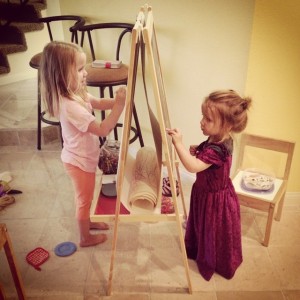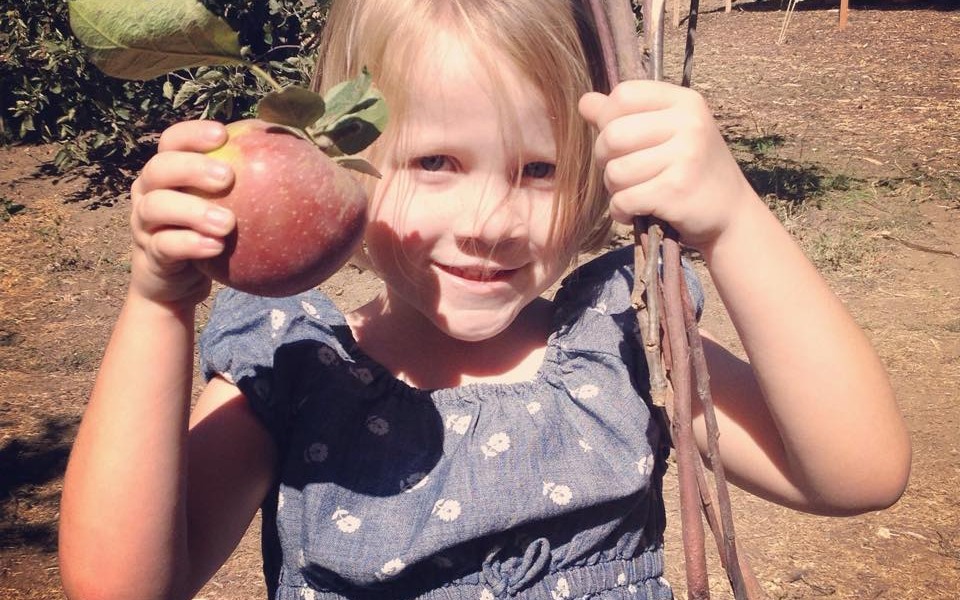What is Speech Therapy like? One Mommy’s Story.
If your child needs to see a speech therapist, there are a ton of great resources to help you through the process. Teachers, pediatricians, ASHA, and the all-knowing Google can guide you through the basics: from what’s an SLP to how to do I understand my IEP? But, there are times when you just want to hear about the experience from another parent. How did they react to the idea of speech therapy? How do they find the time for it? What is Speech Therapy like? What did their other kids think about their big brother having special appointments? Did they ever get a hang of all the acronyms? How do other families go from “I think we need to see someone” to “Speech therapy, yup, that’s a regular part of our family life.”
My kid needs Speech Therapy?
Amy first thought about speech therapy at her daughter’s 12-month well-baby check-up. Her pediatrician was concerned that Alice only had a couple of words, and Amy remembers thinking “how could any problems be apparent this early?” After another year, and more opportunities to observe the language of other children her daughter’s age, Amy decided to follow-up with her pediatrician at the 3-year check-up. Like many parents, Amy thought speech therapy seemed like a good idea, but she was worried that her daughter would think there was something wrong with her. No matter what, she
“wanted to make sure Alice knew she was a smart girl, even if she needed some help with her sounds.”
Amy’s family is typical of most young families who learn their child might need some additional speech help and intervention. With two kids under 5, one parent working more than full-time, and the other parent trying to balance raising kids with a part-time, post-partum return to work, time and money are both in short supply. And, since both kids are still several years away from Kindergarten, neither parent had any experience with their local school district.
Although they worried that finding therapy might strain their already tight resources, Amy was hopeful that they would find something that would enable Alice to be better understood by others. At the end of the day, Amy knew that
“Alice likes talking and was starting to realize that everyone except her mom had a hard time understanding her.”
Early Speech and Language Intervention made a Big Difference
 Now 4 years old, Alice is 6 months into regular speech therapy, and Amy has had some time to reflect on what it has been like for her and her family. Speech therapy has been a clear win-win situation for her family. Alice loves going to class and practicing her words—one of her favorite activities is learning new words and sharing her discoveries with her mommy and daddy. Now that other adults are having an easier time understanding her, Alice is more confident when she talks to people outside her family.
Now 4 years old, Alice is 6 months into regular speech therapy, and Amy has had some time to reflect on what it has been like for her and her family. Speech therapy has been a clear win-win situation for her family. Alice loves going to class and practicing her words—one of her favorite activities is learning new words and sharing her discoveries with her mommy and daddy. Now that other adults are having an easier time understanding her, Alice is more confident when she talks to people outside her family.
Amy had been particularly concerned about the transition to Kindergarten. While Alice is bright and excited to start school, Amy was worried that her daughter might experience school as a place where she was regularly misunderstood. If her mom was her best (and only) translator, how would Alice be heard in a loud classroom? After six months of therapy, Amy feels more confident about the transition although, like most parents, Kindergarten is something she and her husband still think and worry about.
Alice’s younger sister, Emma, knows that her big sister goes to speech therapy, and sometimes she asks to be taken along. When she asks to go to Alice’s appointments, it’s crystal clear what she means. Emma, unlike her big sister, is a confident and precocious speaker. Amy had some initial feelings of “maternal guilt” when Alice first started to exhibit a speech delay. She worked full-time when Alice was a baby, but she was home full-time with Emma. Did that account for the difference between the girls’ language development? With a little hindsight, and a particularly supportive community of friends and moms, Amy is now quite sure that her daughters have different language skills simply because they are different kids. Alice could do things at 12 months that Emma still can’t do at 2, and Emma can articulate her sounds like a Kindergarten-ready 5-year-old. As Amy notes,
“I’m trying to teach them that it’s okay to be good at some things and not so good at other things, but that we want to try to learn as best we can.”
If I only knew…
Although the integration of speech therapy into her family’s life has been smooth and her daughter has shown clear improvement — thanks to therapy, there is still one thing Amy would like to have known when she first learned Alice needed therapy:
“I wish I knew more about what Alice’s needs were before going to her IEP meeting. I didn’t know what to expect, I felt pushed by the therapist who went over my daughter’s IEP and evaluation, and I would have liked to have been pushy in response.”
Now that Alice is about to enter a different school district for her second year of therapy, Amy is going into the process feeling very clear about Alice needing group therapy and individual attention.
We’ll check-in with Amy again in a few months, but in the meantime, there are a lot of places on the web—can you say Mommy Bloggers? —where you can find a parent’s-eye-view of life with a speech delay. Below are three stories from parents—stories about speech delays that are also stories about parenting itself—that we think you might like.
- “Parker’s Speech” on crosbiecrew.blogspot.com
- “The Struggle to Speak” on www.scarymommy.com
- “Burning Onions = 10 Years of Therapy” on alicebradley.net
And if you’re looking for a first (or second) opinion on your child’s speech it’s always easy to find local therapists with Speech Buddies Connect.



